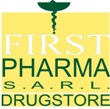 FIRST PHARMA
FIRST PHARMA
Impact of Iodine
A policy statement from the Council on Environmental Health and published in the American Academy of Pediatrics, urged pregnant women to take iodine supplements to boost their child’s brain development. Dietary iodine, historically derived from fish and fortified salt is no longer common in the diet since fish intake has declined and most salt now comes from processed foods prepared with unfortified salt. In addition vegans, because they don’teat fish, likely have iodine deficiency1.
Iodine deficiency is also prevalent in the South East of the UK where in an Efamol/Wassen sponsored study, 100 pregnant women were recently tested in their firsttrimester. Iodine status was significant better in those taking an iodine prenatal supplements (n=42) than in those not taking one. Based on these findings, the authors stated a national survey of iodine status in UK pregnant women is required2.
In France, a systematic literature review including 13 papers found that compared to in 1952, iodine status is better and more women are using psychomotor and neurointellectual disorders3.
Maternal iodine deficiency also:
• impacts foetal and infant brain development and reduces their full potential1
• increases mother and child vulnerabilities to effects of environmental pollutants including tobacco smoke1
• reduces verbal IQ and reading ability of 8-9 year olds4
Maternal supplementation improves foetal and infant iodine nutrition according to a recent study of 1508 pregnant and 87 lactating women and their offspring. Iodine levels were higher in infants from mothers supplemented with 200 μg iodine daily than in those not supplemented5.
The American Thyroid Association and the National Academy of Sciences recommends1:
• 290 μg total daily iodide in breast feeding mothers, which generally requires 150 μg of supplemented iodide
• supplemental iodine should come from potassium iodide.
Efalex Mother & Baby meets all recommendations:
• provides 150 μg of iodide from potassium iodide
• can be taken before and during pregnancy and while breast feeding.
FOOT NOTES
1. Council on Environmental Health. Iodine deficiency, pollutant chemicals and the thyroid: New information on an old problem. Pediatrics 2014 May 26. pii:peds.2014-0900.2. Bath SC et al. Iodine deficiency in pregnant women living in the South East of the UK: the influence of diet and nutritional supplements on iodine status. Br J Nutr 2014 May;111 (9):1622-31.
3. Patey-Perra S. Benefits and risks of iodine suplemntation dueing pregnancy: a review of observational and experimental studies in mild-to-moderate iodine deficiency areas. Rev Epidemiol Sante Publique 2014 Feb;62(1):65-74.
4. Leung AM & Brent GA. Children of mothers with iodine deficiency during reganacy are more likely to have lower verbal IQ and reading scores at 8-9 years of age. Evid Based Nurs 2013 Dec 12.
5. Sukkhojaiwaratkul D atl. Effects of maternal iodine supplementation during pregnancy and lactation on iodine status and neonatal thyroid-stimulating hormone. J Perinatol 2014 Apr 17. doi:10.1038/jp.2014.62.